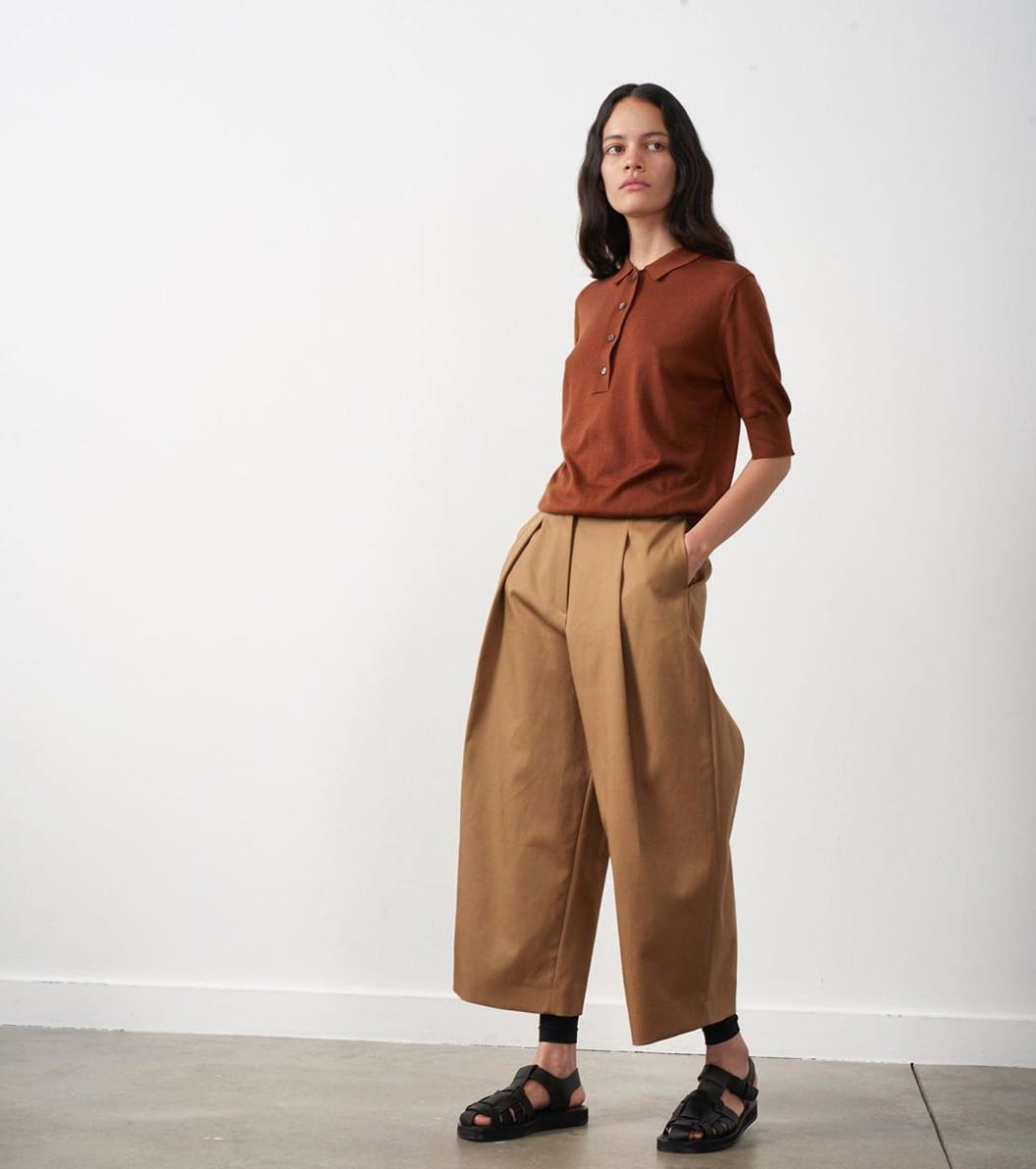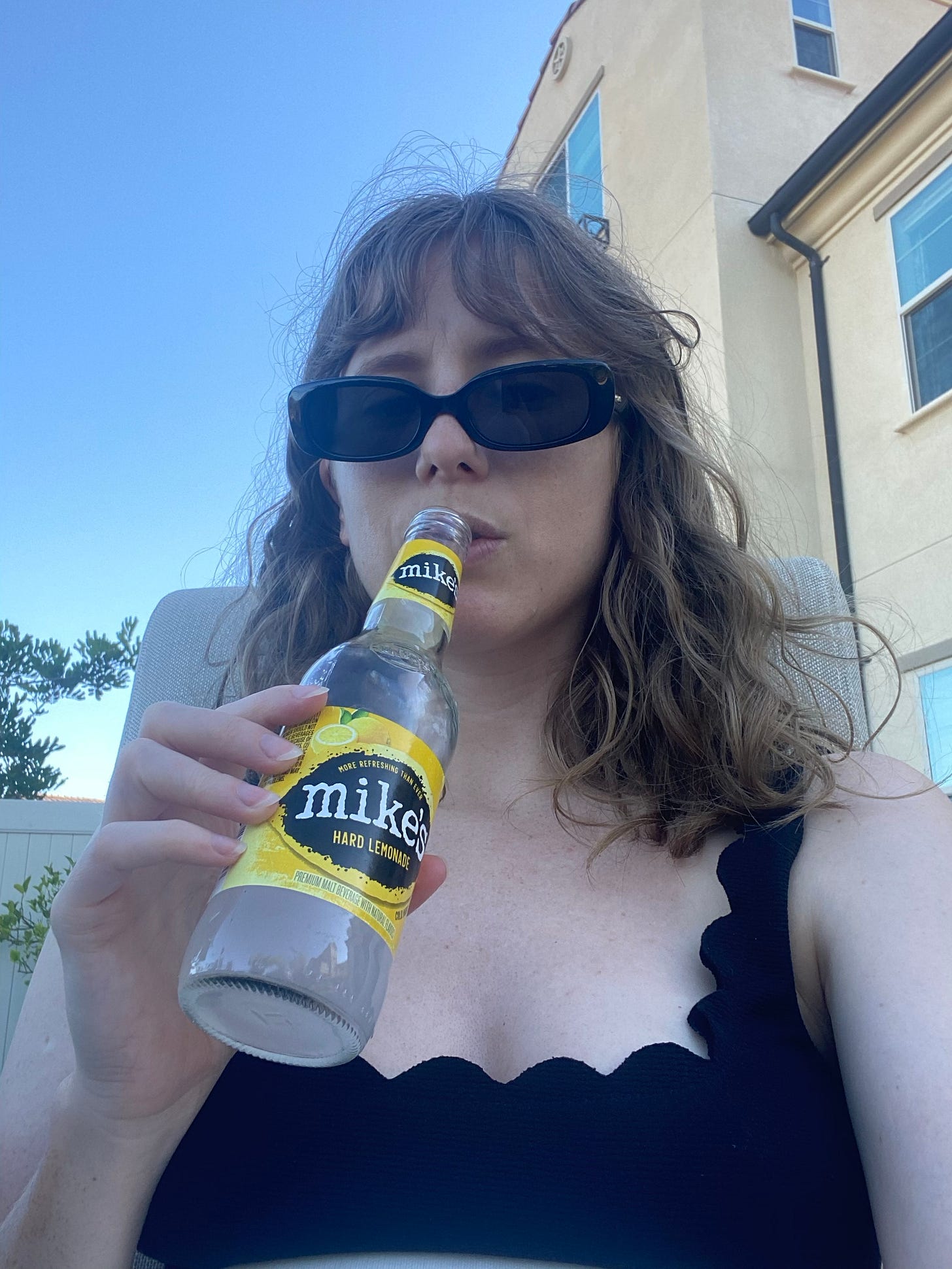#13: Notes on a sad phone call
Maybe Baby no.13
Good morning! It’s raining in New York right now. A few minutes ago I heard a clap of thunder so loud it reminded me of a Universal Studios exhibit I went to in 1998 for the movie Twister. There were fake high winds and thunder and I remember being impressed by the idea of living through dramatic weather like that, which rarely came to my room-temp California hometown. I still think it’s impressive actually. Sometimes I run to the window like a kid on Christmas morning if the weather changes fast enough.
A Place as an Idea
One day in May my sister Kelly called me crying. First she said hi, and then she said: “I don’t know how to tell you this.” I’d answered the phone reclined on the couch, and then I was sitting up so straight Avi looked at me in alarm. “What is it?” I asked, my mind racing. She was silent for a while. “We’re leaving New York,” she finally said. “We’re moving.” And then my whole body unclenched.
It took a few seconds for her news to register as bad, because no one was dead or on the brink of it, and then it finally sunk in as the news I’d been dreading for years. The end of an era that always seemed too good to last: all three Nahman kids in New York, family dinner every Sunday, me and Andy watching our nieces grow up in Brooklyn in real-time. How had we all ended up here, 3,000 miles away from where we fought over the remote for 18 years? I know we’d done it on purpose—followed each other everywhere, maintained the role of best friend in each other’s lives just in case any of us forgot who we used to be—but it always felt unlikely somehow, and in that way, doomed.
“Fuck covid,” my brother texted me the next day. He meant it in a general and a specific sense. It was why so many people were dying, why everyone was depressed and unemployed, and why, after five years, our sister was finally done. She and her husband Matt had been on the fence about staying since having kids, and then the pandemic eradicated the pro list and only left the cons: two full-time jobs and no childcare, expensive rent and no city to justify it, trains unsafe for their high-risk daughters and no car to use instead. Denver could give them the opposite of all of that, especially help from extended family. I understood it right away, which is why there was nothing for Kelly or me to do on the phone except cry at each other. It wasn’t a tragedy; just more sadness and upheaval in a sea of it. She felt heartbroken, I felt gutted. So many things felt over.
Nora and Ruby’s last week in New York
The seeds of New York doubt started sprouting some time in April, and they weren’t just my sister’s. One friend went back to her parents’ house in the suburbs and, after years of struggling to make rent in Brooklyn, started considering whether she should even come back. Another lost his Greenpoint barbershop and decided to move to rural Oregon. Others have been more passive about it, wondering if maybe their time has been up for a while and they’d just been too busy to notice. When I first heard people talking like this, I panicked a little. I wanted everyone to tread carefully, to not judge a place when its down, to remember why they love it here, even if they didn’t. I felt a little like a drunk when his friend says no to another drink: worried the good time would be revealed as a fantasy, a mere delay of something depressing and true.
But I don’t really think that about New York—that it’s just a fantasy. If anything I understand that what we project onto it is only a starting point for what makes it special (or any place special). At a certain point you have to construct a more grounded proposition for living here—one that accounts for the material conditions of your life. And if quarantine has finally given you the space and time to do that, and your conclusion is that it doesn’t amount to a life well-lived, I can both respect that and understand it has nothing to do with my decision to stay. Even if it breaks my heart a little.
I suppose this process can apply to anything in life, whether it’s a city or a religion or a relationship. At some point your idea of a thing has to make way for reality, and avoidance can only get you as far as you can distract yourself. I think this is what’s happening in America, too. A nationwide shutdown finally gave people a minute to realize the extent to which they’ve been lied to—that it’s not actually the land of equal opportunity, that the system is in fact stacked against such a thing, and that the pursuit of stability in the US is actually more depressing than motivating. Or maybe it just finally gave us the time and energy to shout about it in the streets. Either way, the result is the same: clarity about each of our roles in the system. The very thing workism and capitalism are designed to obscure.
There will probably always be a part of me that wants everyone to see New York for all its non-ideological merits because I want myself to see it that way, which in itself is ideological. This is the comedy of “wanting” to love anything; you risk becoming an inadvertent salesperson, more committed to the pitch than your lived experience. But this pause has helped me back away from that instinct; to assess my commitment to the city and my life more authentically, and as a result I feel more confident in both. Of all the havoc this pandemic has wrought, these kinds of reality checks might be some of the most useful. Ideas are important, but they also aren’t enough. Better for all of us to get honest now about why we’re living the way we are.
A month after my sister called me, she was gone. The day she left New York I sat on the floor of her empty apartment and tried to make it mean something. I imagined the room filled with furniture, all of us draped across it on a Saturday morning, my nieces Ruby and Nora running around with household items they’d mistaken for toys. But some part of me already felt closed off. Another year, another month, I might have spent an hour sobbing on her floor, torturing myself with memories and visions of a future I knew would never come. Instead I took it in as it was, recognized things were changing, then walked home.
Joan Didion’s famous essay about leaving New York, “Goodbye to All That” (for posterity).
This retrospective by Jeremy Gordon about the semi-recent folding of The Outline, which was one of my favorite culture sites.
The pleasure of a house hoodie, which is simply a zip-up hoodie you only wear around the house (the fact that it zips is crucial; a pull-over is too much of a commitment).
This tattoo, with envy (although I’d have a toe poking out):
The phrase “diversifies the gentry and gentrifies diversity," as an astute critique of Hamilton.
Connie Wang’s piece, “The ‘Grateful to Be Here’ Generation Has Some Apologizing to Do,” which puts satisfying clear words to an amorphous (dying) movement.
The definition for the term “Kmart realism,” also called “dirty realism,” via my friend, former editor, and avid reader Mallory.
A Lindt Touch of Sea Salt dark chocolate bar (the best chocolate bar), with which I finally convinced Avi it is better to let chocolate melt in your mouth than to chew it, an argument I didn’t know I’d ever have to make.
This sobering fact:

Nikole Hannah-Jones’ New York Times piece, “What Is Owed: It Is Time for Reparations,” which is a thorough and heartbreaking long-read.
An uncountable number of photos from the Instagram page of Studio Nicholson, but especially the unseasonal styling trick of wearing visible leggings other under types of pants.
This depressing and fascinating piece by Anna Weiner for The New Yorker about “ghost kitchens” and the future of food.
An article by none other than Wallace Shawn about why he calls himself a socialist, which offers an interesting and memorable framing of the topic (even if I’m not fully aligned with his thinking).
Two microdoses of mushrooms, which brought me closer to this line from The Idiot, by Elif Batuman: “Math is a language that started out so abstract, more abstract than words, and then suddenly it turned out to be the most real, the most physical thing there was.” (I was looking at some trees.)
And, it would be unethical to omit, my very first Mike’s Hard Lemonade.
Which I liked.
Thank you for reading (again)! I’ll see you next week.
Haley







This one hit.
I moved here 2 weeks before the pandemic hit. I even got sick with covid. And I’m still here. A lot of my family and friends still wonder why I’m here. After losing my job, I wondered more as well...and yet, I feel that I’m not done here. I don’t have kids and I don’t have a husband or boyfriend, I have me and only me to worry about. So I suppose it is easier to stay here in Brooklyn longer than most would, given the circumstances. Every now and again...I waffle about staying...especially as my savings and checking account oscillate...the way I currently feel, all of this wouldn’t be much different if I were back in L.A. The support and love of family and friends, no matter the geography, is ALWAYS with me. And this is what keeps me going forward.
Ps thanks for the list of reads! Will feast on those later!
Pps so happy I subscribed to this. Have a great week!
Thank you, Haley